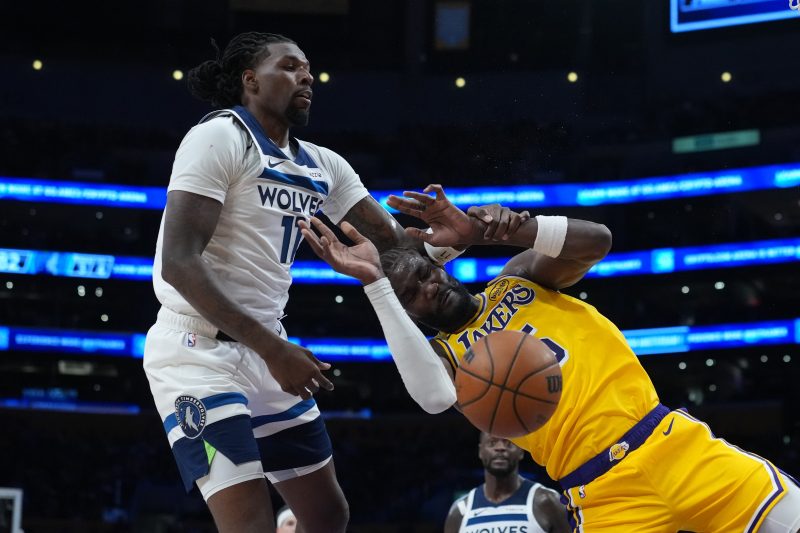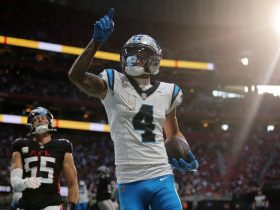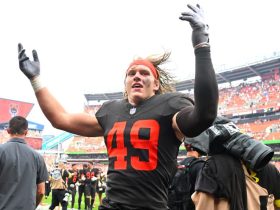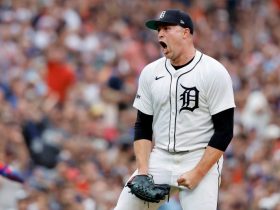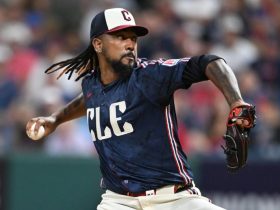Coach Chris Finch and player Donte DiVincenzo described the team’s defensive performance as embarrassing and one of the worst in a long time.
Minnesota’s defense, once a team trademark, has struggled early in the season, ranking 27th in defensive rating.
Players and coaches cited a lack of effort, communication, and on-ball pressure as key issues to be addressed.
LOS ANGELES — Donte DiVincenzo had one word for it.
‘It was embarrassing,’ he said of the Minnesota Timberwolves defense just minutes after Los Angeles Lakers guard Luka Dončić shredded them for 49 points. ‘I think everybody here knows it.’
Timberwolves coach Chris Finch called the 128-110 loss Friday, Oct. 24 against the Lakers ‘one of the worst defensive performances we’ve had in a long time.’
Two nights after they outlasted the Portland Trail Blazers in a four-point win, the Timberwolves lost their first game of the season, mostly because of breakdowns on defense, which had long been Minnesota’s trademark under Finch. It had been the identity that pushed the Timberwolves to consecutive appearances in the Western Conference finals. But these early season struggles might point to a potential regression that could see Minnesota take a step back in the West this season if the issue is not fixed.
‘It’s certainly not where it needs to be,’ Finch added. ‘Not dictating at the point of attack – there’s no aggressiveness to it at all.’
The Timberwolves rank 27th in defensive rating, allowing 123.5 points per 100 possessions. The sample size is tiny, but compare that figure to Minnesota’s total from last season, 110.8, which ranked sixth.
The Timberwolves did lose defensive specialist Nickeil Alexander-Walker in a sign-and-trade to the Atlanta Hawks, but the group is otherwise the same.
Still, Minnesota has struggled to clamp down on opponents early in 2025-26, allowing five Trail Blazers to reach double figures (including Jerami Grant scoring 29 off the bench), and the Lakers to explode for a 40-point third quarter.
The Timberwolves tried to throw different players at Dončić, from Jaden McDaniels, to Anthony Edwards, to Jaylen Clark. None were particularly successful.
Minnesota allowed Dončić to get to his spots and often let up on-ball pressure, leaving Dončić the chance to shoot uncontested shots. He went 14 of 23 (60.9%) from the field, including a hyper-efficient 9 of 11 (81.8%) on two-point shots.
What’s worse is the times the Timberwolves seemingly played decent defense against Dončić, they bailed him out late in the shot clock with fouls; Dončić drained 16 of a wildly frustrating 19 free throw attempts.
‘I think it’s about communication,’ center Rudy Gobert said. ‘It’s about being sharp on our essentials – the things we’ve got to do no matter what. Things that are non-negotiable for us if we want to give ourselves a chance to win. I think tonight is a great example of that. We have to be a little bit tougher mentally, all of us, when things don’t go our way.’
This all points to a larger issue.
The Timberwolves depend on transition baskets to supplement their offense. Without stops, the team is robbed of those chances to push the tempo and get easy baskets.
Friday night, it led to the ball stagnating in the half court, leading to iso matchups that the Lakers clogged up. Edwards led the team with 31 points and Julius Randle chipped in 26. The next-highest scorer was DiVincenzo, with only 13.
If the Timberwolves are unable to lock opponents up as they had in the past, the roster, aside from Edwards and Randle, lacks the sufficient offensive firepower to carry the team.
And while Edwards has scored 72 points through the first two games of the season, it’s unsustainable to expect him to carry so large a burden.
‘I think we let our offense dictate our defense tonight,’ DiVincenzo said. ‘When the shots stopped falling, that’s when they started making their run, and we let go of the rope a little bit after that.’
The question now becomes how the Timberwolves fix this.
Finch said his players need to face up tighter on defense to reduce the open space available to opponents. He also said he would like to see Minnesota move more in unison on defense, acting as a cohesive unit that responds more crisply on the floor.
DiVincenzo had a simpler answer.
‘First and foremost, it’s effort,’ he said. ‘You fix the effort and then you can tweak all the little things, but you can’t tweak all the little things unless you’re giving 100% effort. That’s going to be our foundation this year and we’ve just got to get back to what we know.’

